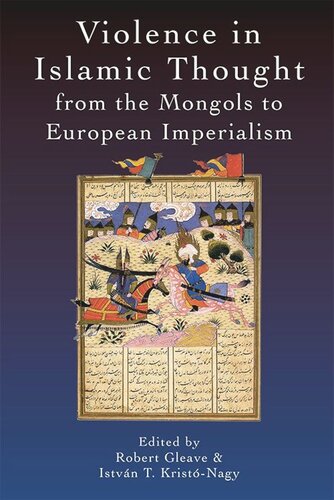

Most ebook files are in PDF format, so you can easily read them using various software such as Foxit Reader or directly on the Google Chrome browser.
Some ebook files are released by publishers in other formats such as .awz, .mobi, .epub, .fb2, etc. You may need to install specific software to read these formats on mobile/PC, such as Calibre.
Please read the tutorial at this link: https://ebookbell.com/faq
We offer FREE conversion to the popular formats you request; however, this may take some time. Therefore, right after payment, please email us, and we will try to provide the service as quickly as possible.
For some exceptional file formats or broken links (if any), please refrain from opening any disputes. Instead, email us first, and we will try to assist within a maximum of 6 hours.
EbookBell Team

0.0
0 reviewsThe violent conquest of the eastern part of the lands under Muslim rule by the Mongols marked a new period in the history of Islamic civilisation and in attitudes towards violence. This volume examines the various intellectual and cultural reactions of Muslim thinkers to these events, both within and without the territories subjected to Mongol control. Each chapter examines how violent acts were assessed by Muslim intellectuals, analysing both changes and continuity within Islamic thought over time.
Each chapter is structured around a case study in which violent acts are justified or condemned, revealing the variety of attitudes to violence in the medieval period. They are framed by a detailed introduction, focusing on theoretical perspectives on violence and religion and their application, or otherwise, to medieval Islam.